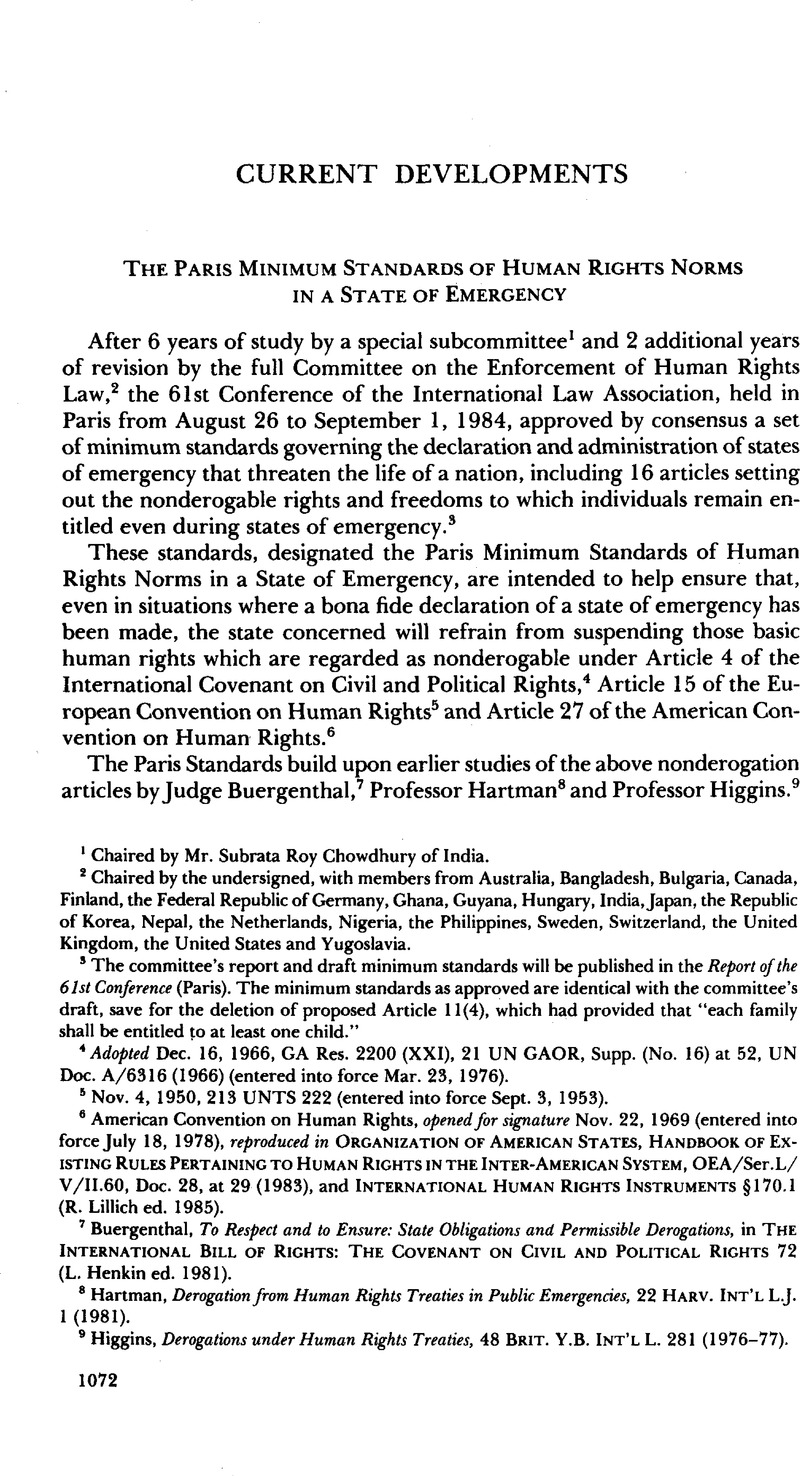Published online by Cambridge University Press: 27 February 2017

1 Chaired by Mr. Subrata Roy Chowdhury of India.
2 Chaired by the undersigned, with members from Australia, Bangladesh, Bulgaria, Canada, Finland, the Federal Republic of Germany, Ghana, Guyana, Hungary, India, Japan, the Republic of Korea, Nepal, the Netherlands, Nigeria, the Philippines, Sweden, Switzerland, the United Kingdom, the United States and Yugoslavia.
3 The committee’s report and draft minimum standards will be published in the Report of the 61st Conference (Paris). The minimum standards as approved are identical with the committee’s draft, save for the deletion of proposed Article 11(4), which had provided that “each family shall be entitled to at least one child.”
4 Adopted Dec. 16, 1966, GA Res. 2200 (XXI), 21 UN GAOR, Supp. (No. 16) at 52, UN Doc. A/6316 (1966) (entered into force Mar. 23, 1976).
5 Nov. 4, 1950, 213 UNTS 222 (entered into force Sept. 3, 1953).
6 American Convention on Human Rights, opened for signature Nov. 22, 1969 (entered into force July 18, 1978), reproduced in Organization of American States, Handbook of Existing Rules Pertaining to Human Rights in the Inter-American System, OEA/Ser.L/V/II.60, Doc. 28, at 29 (1983), and International Human Rights Instruments §170.1 (R. Lillich ed. 1985).
7 Buergenthal, To Respect and to Ensure: State Obligations and Permissible Derogations, in The International Bill of Rights: the Covenant on Civil and Political Rights 72 (L. Henkined. 1981)Google Scholar.
8 Hartman, Derogation from Human Rights Treaties in Public Emergencies, 22 Harv. Int’l LJ. 1 (1981)Google Scholar.
9 Higgins, Derogations under Human Rights Treaties, 48 Brit. Y.B. Int’l L. 281 (1976–77)Google Scholar.
10 Questiaux, Study of the Implications for Human Rights of Recent Developments Concerning Situations Known as States of Siege or Emergency, UN Doc. E/CN.4/Sub.2/1982/ 15(1982).
11 Daes, The Individual’s Duties to the Community and the Limitations on Human Rights and Freedoms under Article 29 of the Universal Declaration of Human Rights, UN Doc. E/CN.4/Sub.2/432/Rev.2 (1983).
12 International Commission of Jurists, States of Emergency: Their Impact on Human Rights (1983).
13 At present, the committee has embarked upon a 4-year study of the international monitoring of states of emergency. This study, intended to determine how international bodies can protect more effectively the basic human rights of individuals set forth in the Paris Standards, is being conducted by the committee’s rapporteur, Prof. Hart man, under the direction of the undersigned.